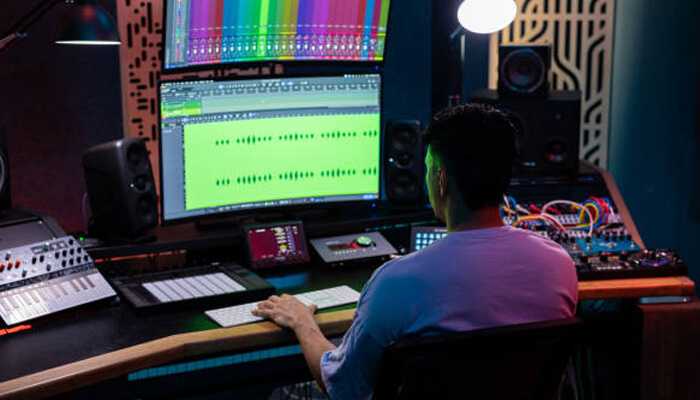Musicians can be creators, but success often comes from being entrepreneurial too. Approaching music as a business secures stability in a career that’s not typically associated with this. Musicians entrepreneurial journey involves building a brand, monetizing their craft, and leveraging digital platforms to grow their audience.
If you want to know what works and why, here are some practical steps for musicians aiming for entrepreneurial growth.
Building Your Brand
Your brand tells the world who you are. It’s your identity and a simple way for audiences to get to grips with what you represent.
There are a few essentials that are needed to shape your brand successfully, including:
- A clear image that reflects your style and personality
- Consistent messaging across all platforms, from social media to websites
- Engaging storytelling through visuals and content
You also need to make sure your tracks are accessible so people who encounter your brand can actually listen to them. Using distribution platforms to get your music heard will strengthen how audiences connect with you. It’s about making them see you, not just hear a song.
Most importantly, you must build trust by staying authentic and delivering what aligns with your crafted image. You’ll also need to show up regularly for fans, whether that’s in posts or performances.
From here, invest in tools that help refine this identity further, like professional photos or logos. The right branding makes everything else, from networking to promotion, more effective because people recognize and remember you clearly.
Networking Strategies for Musicians
Building a strong network is key to opening doors and creating opportunities in the music world. Relationships can lead to gigs, collaborations, or even record deals.
Musicians can effectively network by:
- Attending local events where industry professionals gather
- Collaborating with other artists to grow connections organically
- Staying active online by engaging with fans and fellow musicians
Your approach should feel genuine. It’s about building real relationships rather than simply seeking benefits from others. Share advice, support your peers’ projects, or simply show up consistently at venues where networking happens naturally.
Leverage tools like LinkedIn for professional outreach or join niche communities focused on your genre. A single meaningful contact may connect you with countless others down the line.
Ultimately, remember that lasting networks are built not just on who you know but also on how well they remember and trust you.
Monetizing Your Music
The music industry is worth over $28 billion, but making money from it isn’t just about selling albums. Diversify income streams to create stability and maximize your earnings.
Musicians can monetize their talent via:
- Streaming services that pay royalties for every play
- Merchandise like t-shirts, posters, or custom items featuring your brand
- Live performances ranging from gigs to virtual concerts
Don’t overlook alternative opportunities either. Licensing music for commercials, films, or even video games provides steady revenue while increasing exposure.
Offer exclusive content directly to fans through platforms such as Patreon or private fan clubs. Personalized experiences often bring in dedicated support that lasts longer than traditional sales alone.
Always think of yourself as both a musician and an entrepreneur. Experiment with new avenues over time but track which strategies yield the best returns financially and creatively to combine career viability with artistic integrity.
The Role of Social Media in Musical Entrepreneurship
Social media instantly connects musicians with global audiences. It’s not just a tool for sharing music; it’s a platform for building relationships, promoting work, and driving engagement.
Musicians can use social media effectively by:
- Posting consistent updates about upcoming releases or shows
- Sharing behind-the-scenes content to make fans feel involved
- Using analytics to understand what types of posts resonate most
Platforms like Instagram, TikTok, and YouTube offer creative ways to showcase your talent. Short clips, live streams, or interactive Q&A sessions help strengthen the bond between you and your followers.
Paid ads can also amplify reach but focus on targeting specific demographics rather than casting too wide a net. The goal is quality connections over quantity.
Final Thoughts
Success as a musician requires talent, business strategy, persistence, and creativity. Approach your career like an entrepreneur by building a brand, networking wisely, and using diverse platforms to share your work. Also, stay adaptable and authentic to create opportunities that sustain your art and entrepreneurial goals long-term.



